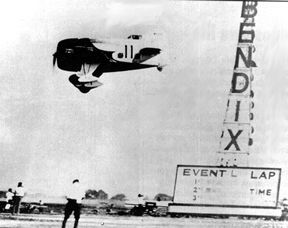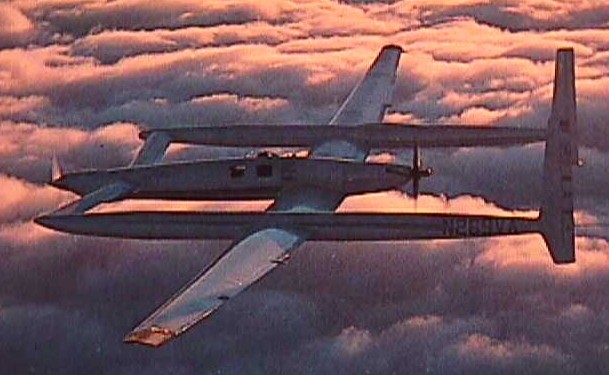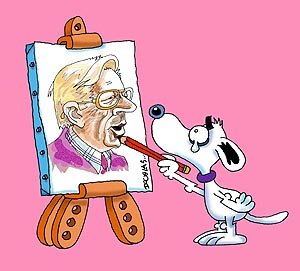December 14

1417 Death: Considered to be the model for Shakespeare's character Falstaff, Sir John Oldcastle, a leader of the Lollards religious sect, is hanged and burned in Britain. (Bradley)
1503 Birth: Michel de Notredame, known as Nostradamus, French physician and astrologer.
1739 Birth: Pierre Samuel du Pont, in France, economist, industrialist.
1798 David Wilkinson of Rhode Island patents the nut and bolt machine, and the screw, too.

1799 Death: George Washington. "On the morning of the thirteenth, the general was engaged in making some improvements in the front of Mount Vernon. As was usual with him, he carried his own compass, noted his observations, and marked out the ground. The day became rainy, with sleet, and the improver remained so long exposed to the inclemency of the weather as to be considerably wetted before his return to the house. About one o'clock he was seized with chilliness and nausea, but having changed his clothes, he sat down to his indoor work - there being no moment of his time for which he had not provided an appropriate employment. At night on joining his family circle, the general complained of a slight indisposition, and after a single cup of tea, repaired to his library, where he remained writing until between eleven and twelve o'clock. Mrs. Washington retired about the usual family hour, but becoming alarmed at not hearing the accustomed sound of the library door as it closed for the night, and gave signal for rest in the well-regulated mansion, she rose again, and continued sitting up, in much anxiety and suspense. At length the well-known step was heard on the stair, and upon the general's entering his chamber, the lady chided him for staying up so late, knowing him to be unwell, to which Washington made this memorably reply: 'I came so soon as my business was accomplished. You well know that through a long life, it has been my unvaried rule, never to put off till the morrow the duties which should be performed today.' Having first covered the fire with care, the man of mighty labors sought repose; but it came not, as it long had been wont to do, to comfort and restore after the many and earnest occupations of the well-spent day. The night was passed in feverish restlessness and pain...The manly sufferer uttered no complaint, would permit no one to be disturbed in their rest on his account, and it was only at daybreak he would consent that the overseer might be called in, and bleeding resorted to. A vein was opened, but no relief afforded. Couriers were dispatched to Dr. Craik, the family, and Drs. Dick and Brown, the consulting physicians, all of whom came with speed.

The proper remedies were administered, but without producing their healing effects; while the patient, yielding to the anxious looks of all around him, waived his usual objections to medicines, and took those which were prescribed without hesitation or remark. The medical gentlemen spared not their skill, and all the resources of their art were exhausted in unwearied endeavors to preserve this noblest work of nature. The night approached - the last night of Washington. The weather became severely cold while the group gathered nearer to the couch of the sufferer, watching with intense anxiety for the slightest dawning of hope. He spoke but little. To the respectful and affectionate inquiries of an old family servant, as she smoothed down his pillow, how he felt himself, he answered, 'I am very ill.' To Dr. Craik, his earliest companion-in-arms, longest tried and bosom friend, he observed, 'I am dying, sir - but am not afraid to die.' To Mrs. Washington he said, 'Go to my desk, and in the private drawer you will find two papers - bring them to me.' They were brought. He continued -'These are my Wills -preserve this one and burn the other,' which was accordingly done. Calling to Colonel Lear, he directed - 'Let my corpse be kept for the usual period of three days.' The patient bore his acute sufferings with fortitude and perfect resignation to the Divine will, while as the night advanced it became evident that he was sinking, and he seemed fully aware that 'his hour was nigh.' He inquired the time, and was answered a few minutes to ten. He spoke no more - the hand of death was upon him, and he was conscious that 'his hour was come.' With surprising self-possession he prepared to die. Composing his form at length, and folding his arms on his bosom, without a sigh, without a groan, the Father of his Country died. No pang or struggle told when the noble spirit took its noiseless flight; while so tranquil appeared the manly features in the repose of death, that some moments had passed ere those around could believe that the patriarch was no more." ---Eyewitness George Washington Custis, then 19.

1819 Alabama becomes the 22nd state of the Union.
1822 The Congress of Verona, a last meeting of the powers of the Holy Alliance and Britain, ends with Britain preventing a possible intervention in revolutionary Spain. (Bradley)
1861 Death: Prince Albert, consort and husband of Queen Victoria of England, of typhoid at Windsor Castle. The grief-stricken queen will go into a long period of mourning. (Bradley)

1896 Birth: James Doolittle, aviator. "...Medal of Honor recipient, pioneering holder of speed records, leader of first aerial attack on the Japanese mainland, and famed World War II air commander. James Harold Doolittle was born in Alameda, California, in 1896. James "Jimmy" Doolittle was educated in Nome, Alaska, Los Angeles Junior College, and spent a year at the University of California School of Mines. He enlisted as a flying cadet in the Signal Corps Reserve in October 1917 and trained at the School of Military Aeronautics, University of California and Rockwell Field Calif. He was commissioned a second lieutenant in the Signal Corps' Aviation Section March 11, 1918, and served successively at Camp Dick, Texas; Wright Field, Ohio; Gerstner Field, Louisiana; and went back to Rockwell Field, chiefly as a flight leader and gunnery instructor. He then went to Kelly Field, Texas, for duty first with the 104th Aero Squadron, and next with the 90th Squadron on border patrol duty at Eagle Pass, Texas. On July 1, 1920 Doolittle got his regular commission and promotion to first lieutenant. He then took the Air Service Mechanical School and Aeronautical Engineering courses at Kelly Field and McCook Field, Ohio, respectively. In September 1922 he made the first of many pioneering flights which earned him most of the major air trophies and international fame.

He flew a DH-4, equipped with crude navigational instruments, in the first cross-country flight, from Pablo Beach, Fla., to San Diego, Calif., in 21 hours and 19 minutes. He made only one refueling stop at Kelly Field. The military gave him the Distinguished Flying Cross for this historic feat. In the same year he received his bachelor of arts degree from the University of California. In July 1923 he entered Massachusetts Institute of Technology for special engineering courses and graduated the following year with a master of science degree, getting his doctor of science degree in Aeronautics a year later, and being one of the first men in the country to earn this degree. In March 1924 he served at McCook Field conducting aircraft acceleration tests. In June 1925 Doolittle went to the Naval Air Station in Washington, D.C., for special training in flying high-speed seaplanes. During this period he served for a while with the Naval Test Board at Mitchel, N.Y., and was a familiar figure in airspeed record attempts in the New York area. He won the Schneider Cup Race - the World's Series of seaplane racing - in 1925, with an average speed of 232 miles per hour in a Curtiss Navy racer equipped with pontoons. This was the fastest a seaplane had ever flown, and Doolittle next year received the Mackay Trophy for this feat. In April 1926 he got a leave of absence to go to South America on airplane demonstration flights. In Chile he broke both ankles but put his Curtiss P-1 through stirring aerial maneuvers with his ankles in casts. He returned to the United States and was in Walter Reed Hospital for these injuries until April 1927 when he was assigned to McCook Field for experimental work and additional duty as instructor with Organized Reserves of the Fifth Corps Area's 385th Bomb Squadron. Returning to Mitchel Field in September 1928, he assisted in the development of fog flying equipment. He helped develop the now almost universally used artificial horizontal and directional gyroscopes and made the first flight completely by instruments. He attracted wide newspaper attention with this feat of "blind" flying and later received the Harmon Trophy for conducting the experiments. In January 1930 he was adviser for the Army on the building of the Floyd Bennett Airport in New York City. Doolittle resigned his regular commission..."

1897 Birth: Margaret Chase Smith, politician.

1900 Professor Max Planck of Berlin University first publishes his Quantum Theory, that radiant energy comes in small indivisible packets and is not continuous as previously thought. (Bradley)
1902 The first transpacific telegraph is laid starting on this day. The cable connects San Francisco and Honolulu with some 2,620 miles of telegraph wire. The cable is laid out by the ship, "Silverton", which leaves San Francisco today and will reach Honolulu on January 1, 1903. (See Jan 3) (Bradley)
1911 Norwegian explorer Roald Amundsen becomes the first man to reach the South Pole, 35 days ahead of Captain Robert Falcon Scott.
1913 Volkishness: Dr. Eugen Fischer's book Die Rehobother Bastards und das Bastardisierungsproblem beim Menschen (The Bastards of Rehoboth and the problem of miscegenation in Man) is published. In it he writes about the people of mixed blood in German South-West Africa: "We should provide them with the minimum amount of protection which they require, for survival as a race inferior to ourselves, and we should do this only as long as they are useful to us. After this, free competition should prevail and, in my opinion, this will lead to their decline and destruction." (Science)
1914 WW1: England breaks the German war code, so that "By the end of January 1915, (British Intelligence is) able to advise the Admiralty of the departure of each U-boat as it left for patrol..." (Simpson)
1918 Women over 30 years of age in Britain are entitled to vote for the first time in a general election and are allowed to stand as candidates. The first to be elected is Irish nationalist Countess Markievicz of Sinn Fein, who cannot take her seat because she is in prison. (Bradley)
1918 Sidonio Pais, the President of Portugal, is fatally wounded as he enters Rossio station in Lisbon only weeks after a previous unsuccessful assassination attempt.
1920 The first fatalities on a scheduled passenger flight occur when an aircraft crashes into a house, killing the two-person crew and two passengers at Cricklewood, London.
1927 Britain signs a treaty recognizing Iraqi independence and offering support for Iraqi admission to the League of Nations.

1935 Thomas Masaryk resigns as Czechoslovakia's first president.
1939 WW2: The League of Nations expels the Soviet Union for aggression against Finland. The Soviets had refused to recognize League of Nations intervention. England and France continue to maintain diplomatic relations with Russia.
1941 Holocaust: Rosenberg raises the Jewish question with Hitler, who tells him that the Jews had brought this war on Germany, and caused the destruction, and that they had only themselves to blame if they had to suffer the consequences. (Architect)
1941 WW2: Dec 14-17 Polish Carpathian Brigade distinguishes itself at Battle of Gazala in Libya. Later they will fight in Italy with the Polish 2nd Corps.
1945 Josef Kramer and 10 others are executed for crimes they committed at the Nazi concentration camps Belsen and Auschwitz.
1959 Archbishop Makarios becomes the first president of the Republic of Cyprus.

1962 The Mariner II space probe begins sending back to Earth man's first information from another planet, Venus.
1978 The UN General Assembly calls for an oil embargo against South Africa.
1981 Israel annexes the Golan Heights, seized from Syria in the 1967 Six-Day War.

1985 Wilma Mankiller becomes the first woman to lead a major American Indian tribe, taking office as the principal chief of the Cherokee Nation of Oklahoma.

1986 The experimental aircraft Voyager takes off from California on the first nonstop, non-refueled flight around the world.
1993 The European Union establishes diplomatic relations with South Africa, putting the final touch to a new policy of cooperation after years of isolation.
1995 Leaders from former Yugoslavia sign a Bosnian peace treaty in Paris, formally ending Europe's worst conflict since WW2 and opening the way for thousands of NATO troops to move into the shattered country.

1999 Cartoonist Charles M. Schulz, creator of Charlie Brown, Snoopy, and the Peanuts gang, announces his retirement after more than 50 years of drawing the cartoon for syndication. Schulz is battling cancer. Schulz was born in 1922 in St. Paul, Minnesota. The son of a barber, Schulz showed an early interest in art and took a correspondence course in cartooning, but scored poorly. After serving in the army in World War II, Schulz returned to St. Paul and took a job lettering comics for a small magazine. In 1947, Schulz began drawing a comic strip called L'il Folks for the St. Paul Pioneer Press. The strip featured a hapless young character named Charlie Brown and his gang of friends. In 1950, after several rejections, Schulz sold syndication rights to United Features, which renamed the strip Peanuts. Schulz drew the comic himself, without assistants, until his retirement in 1999. Peanuts ran in 2,600 papers, in 75 countries and 21 languages, and earned Schulz $30 million a year. (Bradley)
2001 India accuses a Pakistan-based Islamic militant group of carrying out the suicide attack on Parliament and demands that Pakistan arrest the group's leaders.

2001 Israel launches night incursions into villages, killing six Palestinians, and arresting 40 "terrorist suspects." Israel confirms for the first time that it is looking for a successor to Palestinian leader Yasser Arafat. An Arafat aid called the Israeli raids "a new massacre by the Israeli forces."
2001 British officials say they will send a 12-member team to Kabul to gather information on the preparation of a United Nations force that will arrive later in the month to protect the capital of Kabul.

2001 Afghan fighters supported by American aerial bombardment say they have routed the remnants of the al-Qaeda forces in the positions they held in the Tora Bora caves, and only a small pocket of fighters now remain on a snow-capped mountain ridge in eastern Afghanistan near the border with Pakistan.

2001 US President Bush urges patience in the hunt for Osama bin Laden saying, "I don't know whether we're going to get him tomorrow, or a month from now, or a year from now, but we're going to get him."
2001 Captured American Taliban fighter John Walker is moved from Camp Rhino in southern Afghanistan to a US navy ship in the Arabian Sea. A US Defense Department official characterizes Walker's disposition as a "battlefield detainee."

2001 Hundreds of US marines from camp Rhino begin the occupation of the strategic Kandahar airport.
2001 Many newspapers in the Arab world play down the significance of the videotape of Osama bin Laden who discusses the September 11 attack. Some Arabic news agencies question the authenticity of the video, which brings a strong response from President Bush who declares, "This is bin Laden unedited. It's preposterous for anybody to think that this tape is doctored. That's just a feeble excuse to provide weak support for an incredibly evil man."
2001 The last remaining large piece of the World Trade Center is prepared for removal from Ground Zero and NYC officials say the piece will be stored and later used as part of a future memorial.

2001 US Attorney General John Ashcroft say that an interagency task force will review ways to prevent leaks of classified information.
2002

2004

2004

2004

2004

2004

2004

2004

2004

Visit:
 Visit:
Visit:

Click Here to email the History: One Day At a Time webmaster.
































 Visit:
Visit:
